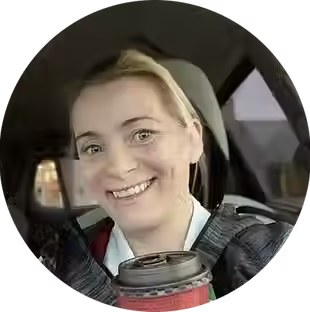Metabolic Approach to Cancer
Integrating Deep Nutrition, the Ketogenic Diet and Nontoxic Bio-INDIVIDUALIZED Therapies
The Metabolic Approach to Cancer (MATC) is an approach that has been flirted with for 100+ years with various MD's, PhD's, ND's and scientists that have made invaluable discoveries. Over the last 20 years the MATC has made huge strides in science and understanding of how to utilize and combine various therapies based upon the individual needs. This process is summed up with 3 things that must be done: Test, Access, and Address.
Testing: In order to individualize any treatment, many blood tests and even genetic testing must be done in order to gain an understanding of the inner workings of your body (aka: your Terrain)
Access: Once the labs have been all collected your doctor will do a complete assessment on your Terrain. This assessment is very involved and will ultimately produce a Protocol for you to follow.
Address: This is where the rubber meets the road, following the protocol to change you Terrain to improve your health and create an environment where the cancer can NOT thrive.
In following this approach, it is important to change your mindset regarding cancer. In most cases cancer is not an emergency and there is usually no reason to be scared or to jump right into Chemotherapy, Radiation or even immunotherapy. While those treatments are powerful, they do NOT address the underlying Terrain that created the Cancer in the first place, nor do they contribute to making positive changes in your Terrain. Because these treatments have been the standard of care for so long without addressing the underlying Terrain, we as a society have come to fear cancer and create a multi-Billion-dollar industry that only promises to extend life for a short time.
Below you will find information on some of the best MATC Doctors from around the world. They are listed here because they want to help you and are willing to take your case remotely. They will order your labs (which can be done at our office locally), They will access your Terrain from those labs and then Address the needs of the Terrain by providing a protocol for you to follow, most treatments that they will give can be done here locally in our office.
Also to help you along the way, there are MATC advocates that can help you through navigating all things regarding cancer. These MATC advocates can be priceless in answering many questions you may have and coordinating with a variety of doctors.
Metabolic Approach to Cancer Through the Metabolic Terrain Institute of Health

Dr. Janet Maendel
Request an Appt. or Information:
Janet Maendel is a Doctor of Natural Medicine (DNM) and a leading expert in integrative oncology and functional medicine, combining her extensive training with a compassionate, patient-centered approach. Her expertise lies in employing The Metabolic Approach to Cancer, a cutting-edge, evidence-based clinical methodology designed to address cancer as a metabolic disease. This comprehensive approach utilizes advanced diagnostics, including blood chemistry, genomic analysis, toxicity profiling, hormone assessment, microbiome testing, and more, to create personalized strategies for optimizing therapies, food plans, detoxification protocols, and supplement regimens.
Janet’s work with The Metabolic Approach to Cancer empowers patients at every stage of their journey—whether as a preventative measure, in conjunction with conventional treatments like chemotherapy, radiation, or surgery, or during post-treatment recovery. By identifying and addressing the root causes that contribute to the growth and progression of cancer, Janet’s practice focuses on restoring balance and resilience to the body’s metabolic terrain.
She is a Certified Functional Medicine Practitioner (CFMP) and an Integrative Functional Medicine Practitioner (I.F.M.P.), with specialized training in functional medicine—a data-driven, systems-based approach that emphasizes understanding and treating the underlying causes of illness and nutrient deficiencies.
In addition to her functional medicine credentials, Janet holds a diploma and doctoral degree in Manual Osteopathy, equipping her with advanced expertise in holistic manual therapies. These modalities are used to effectively treat musculoskeletal conditions and injuries while supporting the body's overall structural and functional integrity.
Janet’s integrative care philosophy reflects her commitment to providing scientifically informed, personalized treatment plans tailored to each patient’s unique needs, fostering healing, balance, and vitality in the body, mind, and spirit.


